
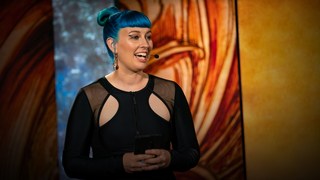
566 Views
Fashion that celebrates all body types — boldly and unapologetically
Fashion designers have the power to change culture -- and Becca McCharen-Tran is using her platform to expand the industry's narrow definition of beauty. Sharing highlights of her work, McCharen-Tran discusses the inspiration behind her norm-shattering designs and shows how she's celebrating beauty in all forms. "I want the consumer to know that it's not your body that needs to change -- it's the clothes," she says.
Post date : 2019-10-27 10:26
Posted by : moviegoer
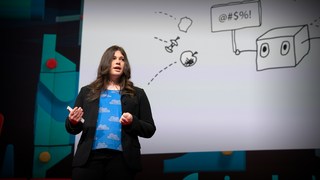
576 Views
The danger of AI is weirder than you think
The danger of artificial intelligence isn't that it's going to rebel against us, but that it's going to do exactly what we ask it to do, says AI researcher Janelle Shane. Sharing the weird, sometimes alarming antics of AI algorithms as they try to solve human problems -- like creating new ice cream flavors or recognizing cars on the road -- Shane shows why AI doesn't yet measure up to real brains.
Post date : 2019-10-27 10:24
Posted by : moviegoer
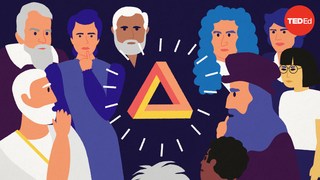
537 Views
Hawking's black hole paradox explained
Today, one of the biggest paradoxes in the universe threatens to unravel modern science: the black hole information paradox. Every object in the universe is composed of particles with unique quantum properties and even if an object is destroyed, its quantum information is never permanently deleted. But what happens to that information when an object enters a black hole? Fabio Pacucci investigates. [Directed by Artrake Studio, narrated by Addison Anderson, music by WORKPLAYWORK / Cem Misirlioglu].
Post date : 2019-10-27 10:23
Posted by : moviegoer
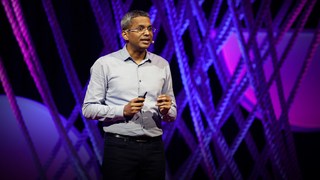
547 Views
How motivation can fix public systems
How do you fix broken public systems? You spark people's competitive spirit. In a talk about getting people motivated to make change, public sector strategist Abhishek Gopalka discusses how he helped improve the health system of Rajasthan, a state in India home to more than 80 million people, using the powers of transparency and public accountability. "Motivation doesn't just appear," Gopalka says. "Something needs to change to make you care."
Post date : 2019-10-27 10:21
Posted by : moviegoer
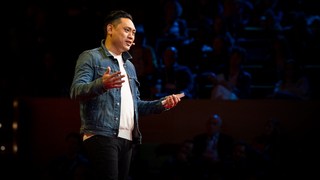
522 Views
The pride and power of representation in film
On the heels of the breakout success of his film "Crazy Rich Asians," director Jon M. Chu reflects on what drives him to create -- and makes a resounding case for the power of connection and on-screen representation.
Post date : 2019-10-27 10:20
Posted by : moviegoer
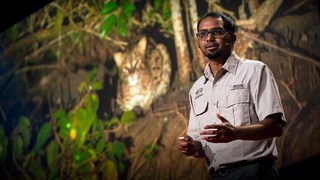
585 Views
The link between fishing cats and mangrove forest conservation
Mangrove forests are crucial to the health of the planet, gobbling up CO2 from the atmosphere and providing a home for a diverse array of species. But these rich habitats are under continual threat from deforestation and industry. In an empowering talk, conservationist and TED Fellow Ashwin Naidu shares how community-driven efforts in South and Southeast Asia are working to protect mangroves -- all with a little help from the mysterious and endangered fishing cat.
Post date : 2019-10-27 10:18
Posted by : moviegoer
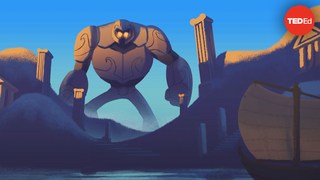
579 Views
The Greek myth of Talos, the first robot
Hephaestus, god of technology, was hard at work on his most ingenious invention yet. He was creating a new defense system for King Minos, who wanted fewer intruders on his island kingdom of Crete. But mortal guards and ordinary weapons wouldn't suffice, so the visionary god devised an indomitable new defender. Adrienna Mayor dives into the myth of Talos: the first robot. [Directed by Cabong Studios, narrated by Alexandra Panzer, music by Matheus Wittmann].
Post date : 2019-10-27 10:17
Posted by : moviegoer
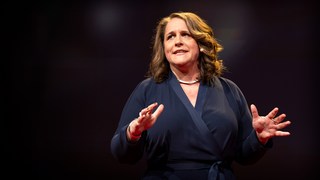
533 Views
How you can help transform the internet into a place of trust
How can we stop the spread of misleading, sometimes dangerous content while maintaining an internet with freedom of expression at its core? Misinformation expert Claire Wardle explores the new challenges of our polluted online environment and maps out a plan to transform the internet into a place of trust -- with the help everyday users. "Together, let's rebuild our information commons," she says.
Post date : 2019-10-27 10:15
Posted by : moviegoer
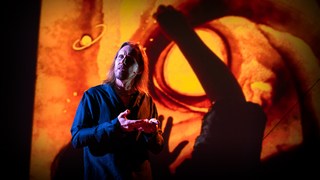
551 Views
How we experience awe — and why it matters
Neuroscientist Beau Lotto conducted an ambitious study with Cirque du Soleil on the emotion of awe and its psychological and behavioral benefits. In this talk and live performance, he shares some of their findings -- and stands back as Cirque du Soleil dancers create their own awe-inducing spectacle.
Post date : 2019-10-27 10:13
Posted by : moviegoer
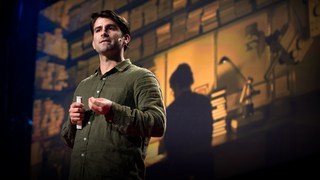
515 Views
Why we need more (real) science in fiction
Filmmaker, biologist and TED Fellow Alexis Gambis makes films grounded in fact, straddling the genres of experimental, documentary and fiction. Showing clips of his work, Gambis demonstrates how storytelling helps explain important scientific advancements and social issues -- and how it can be a lens on our own humanity. "We need more real science in fictional movies, to create more eclectic, more inclusive, more poetic portrayals of science and scientists in the world," he says.
Post date : 2019-10-27 10:11
Posted by : moviegoer




 Video
Video Web
Web Image
Image Music
Music BlogU
BlogU


